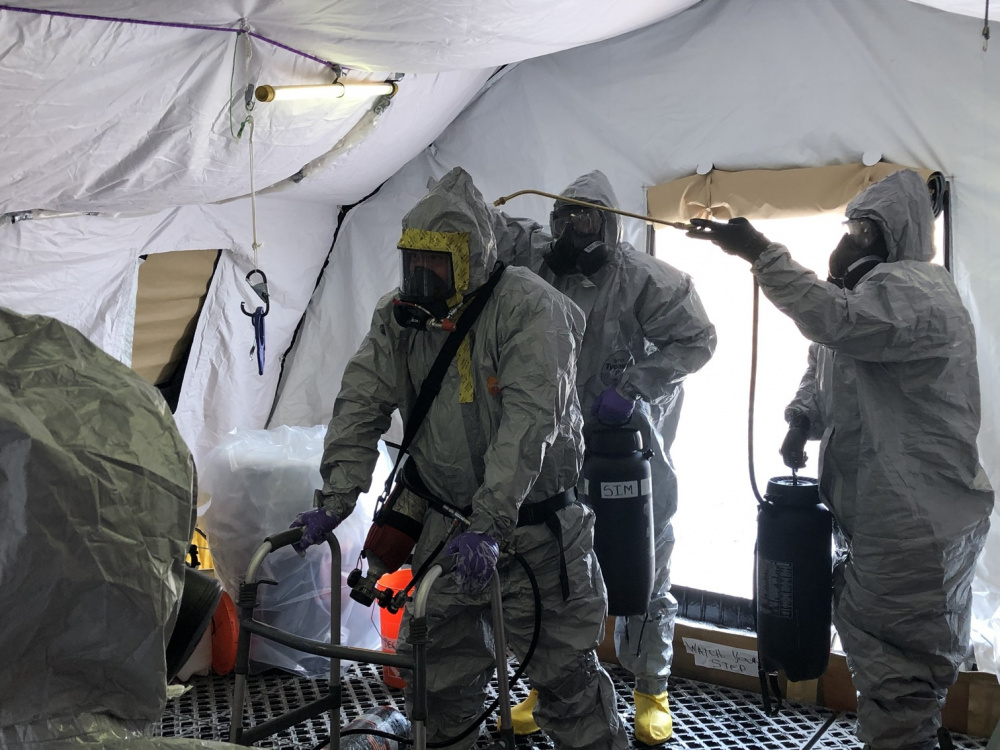16/07/2021 Stati Uniti, New Jersey, Ocean, Lakehurst
“If you ever come across anything suspicious like this item, please do not pick it up, contact your local law enforcement agency for assistance”
U.S. Army units from the 20th Chemical, Biological, Radiological, Nuclear, Explosives (CBRNE) Command conducted a five-month operation to remove unexploded chemical munitions from a World War I era training range. Army civilians from CBRNE Analytical and Remediation Activity, an all-civilian organization based on Aberdeen Proving Ground, Maryland, was the lead organization from the 20th CBRNE Command. Soldiers from the Fort Bliss, Texas-based 46th Chemical Company’s CBRNE Response Team 4 supported CARA during the operation.
Nell’ex poligono risalente alla prima guerra mondiale (Joint Base McGuire), artificieri dell’Esercito del 20° comando chimico, biologico, radiologico, nucleare, esplosivi (CBRNE) hanno condotto un’operazione durata cinque mesi per rimuovere e distruggere ordigni chimici inesplosi. A questa operazione hanno collaborato i tecnici della CBRNE Analytical and Remediation Activity, un’organizzazione interamente civile con sede ad Aberdeen Proving Ground, nel Maryland. Tra gli ordigni individuati nel sito, sei granate sono risultate contenenti gas mostarda.
If you find anything that appears to be an explosive device, do not touch it, leave it where it is and call the police. We will contact the appropriate agencies to properly dispose of the item.
Dear editors, Biography of a bomb is aimed at highlighting the danger caused by unexploded bombs. Moreover, the most important aspect is that we work completely non profit, raising awerness about this topic is what drives us. We apologize if we make use of pictures in yours articles, but we need them to put a context in how findings are done. We will (and we always do) cite source and author of the picture. We thank you for your comprehension.





